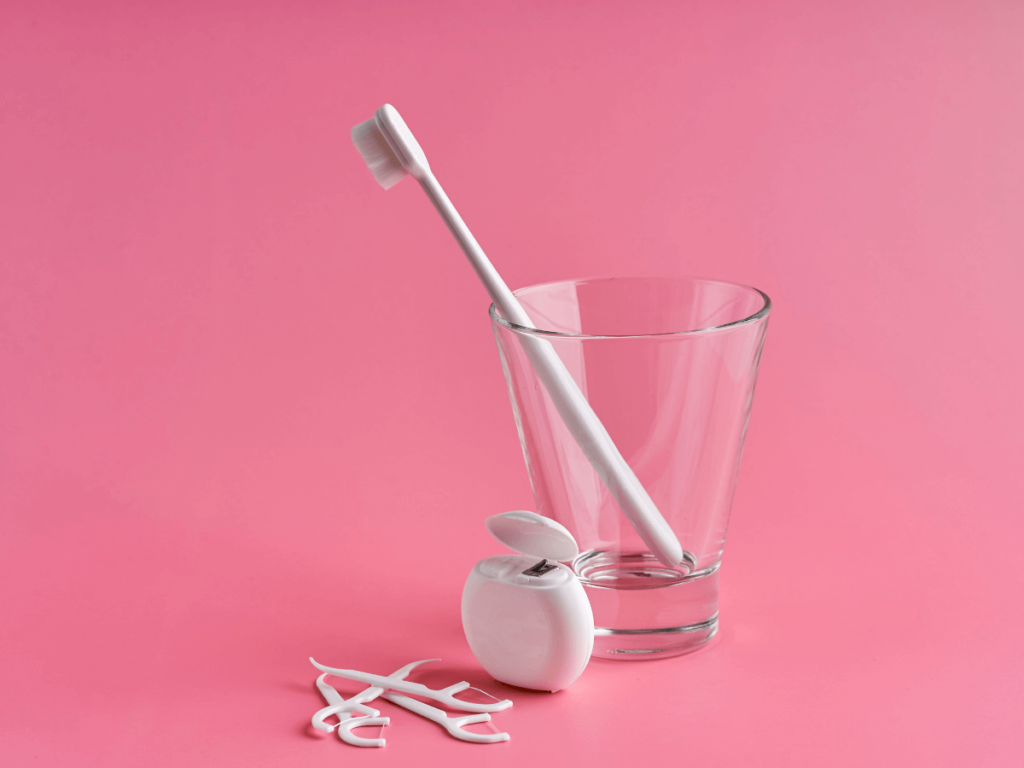
Do you have a toothache? Are you feeling discomfort when you eat or drink something cold or hot? Or, did you visit your Fairview dentist and was told that you have your first cavity? No matter how you find out that you have cavities, cavities are some of the most common oral health concerns. Cavities affect people of all ages, so even if you avoided getting cavities as a child, you could still get a cavity as an adult.
In the event you do experience a cavity, here are some of the causes of why you might get a dental cavity and how your general dentist near you can help treat it.
We all know about cavities, but what are they? Cavities are essentially holes caused by acid that can occur in baby teeth or permanent teeth (adult teeth). This acid is created through the bacteria that are found in your mouth. When the acid is left on your teeth, it attacks the outer surface of the tooth enamel and over time, the acid wears down the teeth, causing a cavity.
For older adults, they are at greater risk of developing tooth-root decay. As our gums recede, the roots of the teeth are at risk of exposure to plaque. Cavities should not be ignored as it will not go away on it’s own unless taken care of by a dentist. When the affected tooth is left untreated, cavities can cause more problems such as:
If you suspect that you have a cavity, you’re probably experiencing some of these symptoms.
If you’ve never had a cavity filled before, the dental treatment to repair the tooth is straightforward and can be performed in one short visit. Your Fairview dentist will numb your tooth and the neighboring areas with a local anesthetic during your visit, so you don’t feel the procedure. Your dentist may suggest sedation dentistry for individuals who have dental anxiety, such as nitrous oxide, more commonly known as laughing gas.
Once numb, your dentist will isolate the tooth and keep it dry to reduce the risk of infection. Surgical tools will be used to remove any plaque in the area, along with any decayed material from the tooth. When the decay is no longer visible, your tooth will be prepped for filling. Once your dentist has prepped the tooth, the filling material (composite material) will be applied, and a curing light will be used so that the filling material will bond with your teeth. The dentist will then make sure your new filling isn’t affecting your alignment and bite. When everything looks good as new, the dentist will then polish the filling until it is smooth enough to match the surface of your other teeth.
There are many ways you can prevent future cavities from forming. Here are some of the best ways to protect yourself against cavities and more serious tooth decay issues.

One way to protect your smile is with sealants. They are a thin layer of tooth-colored resin that goes over the smooth surface of your teeth that helps strengthen tooth enamel. Getting sealants applied is quick and easy and makes a big difference that can help prevent tooth decay for up to ten years with proper dental oral hygiene such as brushing and flossing.

Cavities are a common dental problem that affects adults and children alike. They start as small fillings, but they can cause tooth decay and other serious problems if left untreated. As soon as you notice tooth sensitivity, pain, discomfort or signs of cavities in your teeth, call your Fairview dentist as soon as possible to have it get checked out, and avoid invasive treatments.
Our goal at Sloan Creek Dental is to provide our patients with healthy teeth and picture-perfect smiles. Dr. Feng and the team at Sloan Creek Dental are your best resources for dental restorations with your comfort and care in mind. We combine modern techniques, comprehensive examination, precise diagnosis, and long-lasting results to deliver exactly what you need.
To learn more about your options for effective treatment of dental caries or dental fillings, contact us at our Fairview, TX office to schedule an appointment with us today – 972-468-1440
Our dental office is located in Fairview, Texas, and our patients visit us from across the surrounding areas, including Allen, Plano, McKinney, and Lucas.
We firmly believe that the internet should be available and accessible to anyone, and are committed to providing a website that is accessible to the widest possible audience, regardless of circumstance and ability.
To fulfill this, we aim to adhere as strictly as possible to the World Wide Web Consortium’s (W3C) Web Content Accessibility Guidelines 2.1 (WCAG 2.1) at the AA level. These guidelines explain how to make web content accessible to people with a wide array of disabilities. Complying with those guidelines helps us ensure that the website is accessible to all people: blind people, people with motor impairments, visual impairment, cognitive disabilities, and more.
This website utilizes various technologies that are meant to make it as accessible as possible at all times. We utilize an accessibility interface that allows persons with specific disabilities to adjust the website’s UI (user interface) and design it to their personal needs.
Additionally, the website utilizes an AI-based application that runs in the background and optimizes its accessibility level constantly. This application remediates the website’s HTML, adapts Its functionality and behavior for screen-readers used by the blind users, and for keyboard functions used by individuals with motor impairments.
If you’ve found a malfunction or have ideas for improvement, we’ll be happy to hear from you. You can reach out to the website’s operators by using the following email
Our website implements the ARIA attributes (Accessible Rich Internet Applications) technique, alongside various different behavioral changes, to ensure blind users visiting with screen-readers are able to read, comprehend, and enjoy the website’s functions. As soon as a user with a screen-reader enters your site, they immediately receive a prompt to enter the Screen-Reader Profile so they can browse and operate your site effectively. Here’s how our website covers some of the most important screen-reader requirements, alongside console screenshots of code examples:
Screen-reader optimization: we run a background process that learns the website’s components from top to bottom, to ensure ongoing compliance even when updating the website. In this process, we provide screen-readers with meaningful data using the ARIA set of attributes. For example, we provide accurate form labels; descriptions for actionable icons (social media icons, search icons, cart icons, etc.); validation guidance for form inputs; element roles such as buttons, menus, modal dialogues (popups), and others. Additionally, the background process scans all of the website’s images and provides an accurate and meaningful image-object-recognition-based description as an ALT (alternate text) tag for images that are not described. It will also extract texts that are embedded within the image, using an OCR (optical character recognition) technology. To turn on screen-reader adjustments at any time, users need only to press the Alt+1 keyboard combination. Screen-reader users also get automatic announcements to turn the Screen-reader mode on as soon as they enter the website.
These adjustments are compatible with all popular screen readers, including JAWS and NVDA.
Keyboard navigation optimization: The background process also adjusts the website’s HTML, and adds various behaviors using JavaScript code to make the website operable by the keyboard. This includes the ability to navigate the website using the Tab and Shift+Tab keys, operate dropdowns with the arrow keys, close them with Esc, trigger buttons and links using the Enter key, navigate between radio and checkbox elements using the arrow keys, and fill them in with the Spacebar or Enter key.Additionally, keyboard users will find quick-navigation and content-skip menus, available at any time by clicking Alt+1, or as the first elements of the site while navigating with the keyboard. The background process also handles triggered popups by moving the keyboard focus towards them as soon as they appear, and not allow the focus drift outside of it.
Users can also use shortcuts such as “M” (menus), “H” (headings), “F” (forms), “B” (buttons), and “G” (graphics) to jump to specific elements.
We aim to support the widest array of browsers and assistive technologies as possible, so our users can choose the best fitting tools for them, with as few limitations as possible. Therefore, we have worked very hard to be able to support all major systems that comprise over 95% of the user market share including Google Chrome, Mozilla Firefox, Apple Safari, Opera and Microsoft Edge, JAWS and NVDA (screen readers), both for Windows and for MAC users.
Despite our very best efforts to allow anybody to adjust the website to their needs, there may still be pages or sections that are not fully accessible, are in the process of becoming accessible, or are lacking an adequate technological solution to make them accessible. Still, we are continually improving our accessibility, adding, updating and improving its options and features, and developing and adopting new technologies. All this is meant to reach the optimal level of accessibility, following technological advancements. For any assistance, please reach out to